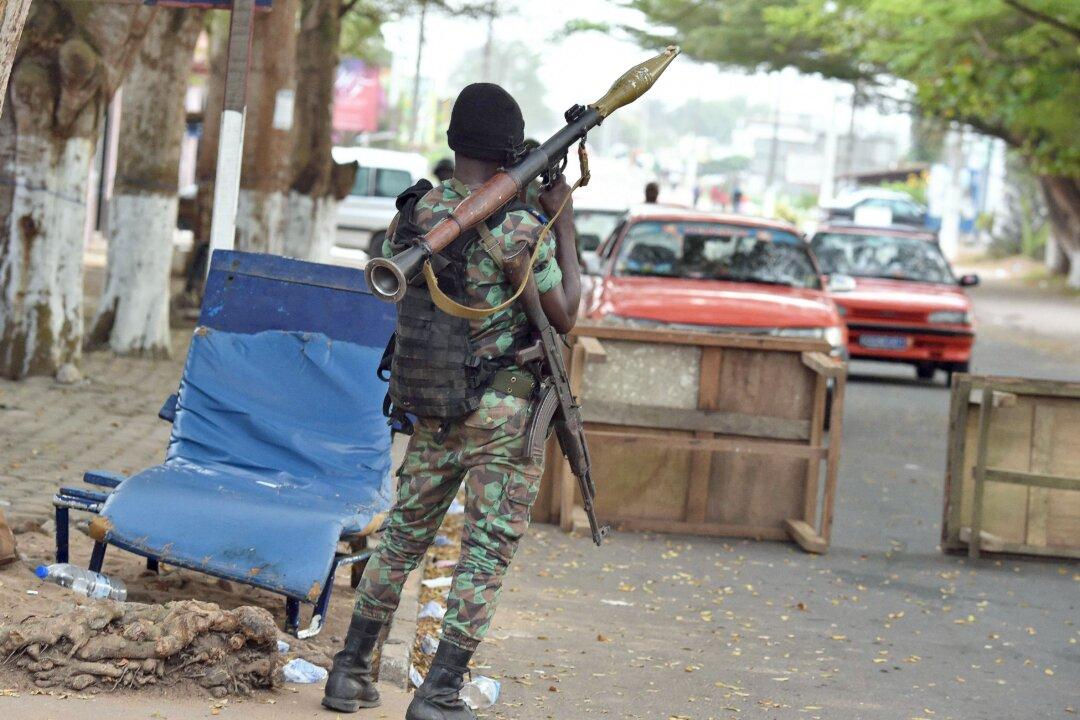ADDIS ABABA, Ethiopia—The attack on an Ivory Coast beach resort by an al-Qaida affiliate is the latest sign it is shifting its focus to soft targets associated with foreigners in an effort to destabilize economies and gain the group credibility among jihadis in its rivalry with the so-called Islamic State (ISIS).
The three gunmen who burst into the Grand-Bassam beach resort and killed 18 people were part of al-Qaida in the Islamic Maghreb, a group that grew out of the Algerian civil war in the 1990s and used to restrict itself to operations deep in the desert, hundreds of miles away.
[aolvideo src=“http://pshared.5min.com/Scripts/PlayerSeed.js?sid=1759&width=580&height=356&playList=519579502&responsive=false&pgType=console&pgTypeId=discovery-videoDetails-grabCodeBtn”]
In recent months, however, it has carried out devastating attacks against luxury hotels frequented by foreigners: first in Mali in November, then in Burkina Faso in January, and now even farther south in an Ivorian resort popular with tourists and locals alike.
“They are essentially shifting their strategy from operating in northern Mali and southern Algeria and parts of Libya to much more commercially relevant areas,” said Robert Besseling, director of the Exx Africa risk advisory group. “Therefore it undermines the whole region’s economy and the business confidence surrounding these economies.”
Al-Qaida’s North Africa branch was once known for striking military posts in Algeria and neighboring countries, but such attacks were often difficult and made little impact internationally.
The group has now taken its cue from other, more brutal organizations around the world and turned to civilian targets linked to its enemies—principally the French.
“They’ve realized how easy it is and how much fear you can spread by doing this,” said Sean Smith, the Africa analyst at Verisk-Maplecroft Risk Consultancy. “You can spread much more fear by attacking capital cities and tourist complexes than the Malian army.”
[morearticles]1990914, 1955879[/morearticles]
The shift comes as AQIM is under unprecedented pressure from the French-led Operation Barkhane, a wide ranging campaign in the Sahara that has killed a number of jihadi commanders.
According to Andrew Lebovich, an expert on the group, one of its commanders said in a recent interview that all political and security partners of France and the West were now considered valid targets.
The violence at the hotels also comes as one of the al-Qaida’s most feared commanders, Moktar Belmoktar, the architect of a 2013 attack on an Algerian gas plant, has rejoined the group with his followers and apparently expanded its capabilities dramatically.
“It is a way of showing that they can and will strike far away from the areas that had previously been regarded as security threats, while still maintaining operations in northern Mali and central Mali in particular,” Lebovich said.
[morearticles]1904150, 1988437[/morearticles]
The merger of al-Qaida splinters in this region also comes as the group is under increasing pressure from the dramatic success of ISIS, which has carried out high-profile attacks in Libya and Tunisia and is in danger of peeling away al-Qaida followers.
“They need publicity to counter the rise of the Islamic State and prove they are still here and capable of mounting spectacular operations,” said Djallil Lounnas, an expert on AQIM at Morocco’s AlAkhawayn University. “Moving south means they can strike anywhere and hit much softer and easier targets.”
While there are fears that the group will set its sights next on close Western allies Ghana and Senegal, the attacks have put the whole region on the alert.
In contrast to the long, drawn-out standoffs in the Mali and Burkina Faso attacks, Ivorian forces subdued the attackers in a matter of hours, suggesting that West Africa may be a more difficult target for al-Qaida.





